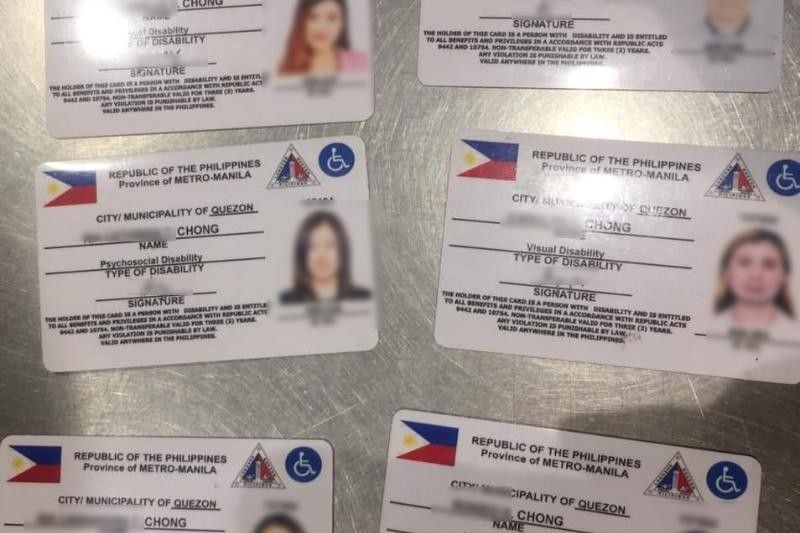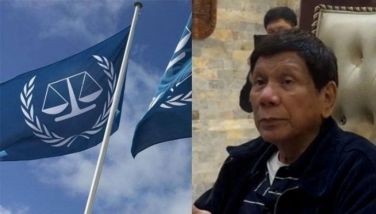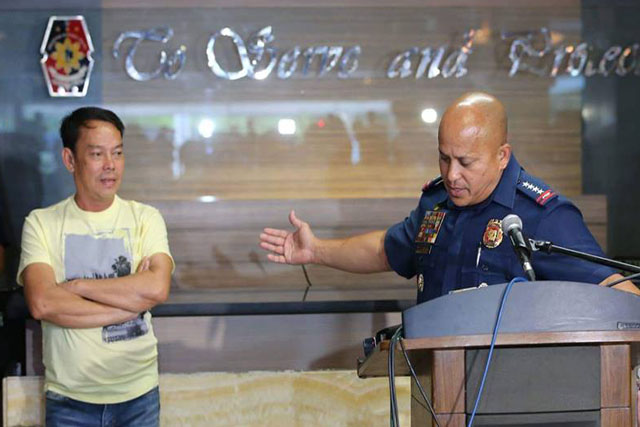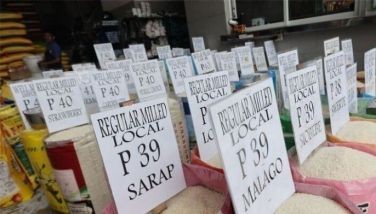Family with six PWD cards invited to House hearing, asked to cooperate with QC legal

MANILA, Philippines — The family whose photo of six persons with disability (PWD) identification cards is set to be invited to the next hearing of the House of Representatives' special committee on persons with disabilities.
The Chong family gained notoriety on social media over the past few weeks after photos of six PWD cards belonging to each member of the family, five of them with visual ailments, circulated online.
At the House special committee on Persons with Disabilities’ briefing on the government’s response for PWDs over the coronavirus pandemic, Rep. Mikey Arroyo said: “They’re the supposed perpetrators of this fake ID. I believe that we cannot have a hearing if we don’t invite them to correct this supposed misdemeanor or misdeed. I would like to turn a manifestation into a motion that we invite the Chong family."
Quezon City’s government has already said that the six cards of the family were not justified by application forms or other documents and that their releases were "facilitated" by a corrupt city employee.
“This has to come to a stop under our watch. This committee intends to add to our existing laws to ensure that only those with legitimate disabilities shall be granted these benefits. They are prone to abuse because there have been accounts of healthy individuals who were able to obtain cards in order to acquire benefits,” said Rep. Lourdes Arroyo (Negros Occidental 5th District), committee chair.
“My goodness. This highlights a lack of personal and social conscience, education, upbringing, and a high sense of entitlement,” she added.
As of this publishing, the local government told Philstar.com, “the focus is addressing the flaws in the process relative to the issuance of PWD ID and going after corrupt QC government employees who are responsible for the irregularities.”
“We encourage the family involved to cooperate in the investigation [and] urge the family to shed light on the incident by means of getting in touch with the QC Legal Department and help the investigation,” Quezon City legal officer Nino Casimiro said in a text message.
The family has not reached out or been contacted yet, the city said.
"I would also like to hear their side. How they got this, if and where they got this. It is also good to know that everyone who is accused is innocent until proven guilty," Arroyo said.
Only the DSWD and the DOH sent representatives to the hearing, while the National Council on Disability Affairs was nowhere to be found.
“Nobody seems to pay attention to PWDs...we have so many needs. Please help us,” Arroyo said.
'Ongoing consolidating of data'
In a presentation, DSWD Program Management Bureau Sectoral Programs Division chief Miramel Laxa said that the department identified the main concerns of the sector over the community quarantine as:
- Unsynchronized disability data and statistics
- Need for enhanced support service and mechanisms
- Limited employment opportunities
- Attitude towards persons with disabilities
“Until now, we're receiving reports that discrimination towards PWDs has been bad. So we really can't say that our society is barrier-free when they're still facing that kind of treatment,” she said.
The department’s much-delayed social amelioration distribution is the subject of a separate House probe, whose last hearing also saw the DSWD highlighting the challenges it went through in the process of rolling out aid.
The government’s social amelioration program is meant to support those most affected by the community quarantine, including vulnerable sectors like persons with disabilities. Under general community quarantine rules, PWDs are still prohibited from leaving their residences.
Citing the 2010 census, which is the latest available data on persons with disabilities, Laxa said that a total of 38,269 PWDs were provided with social amelioration aid across the Southwestern Tagalog Region, Central Mindanao, Calabarzon and Caraga. The department also presented 2016 data from its National Household Targeting Office.
PWD advocates have said that the lack of data is one of the biggest obstacles hampering the sector institutionally.
- Latest
- Trending

































